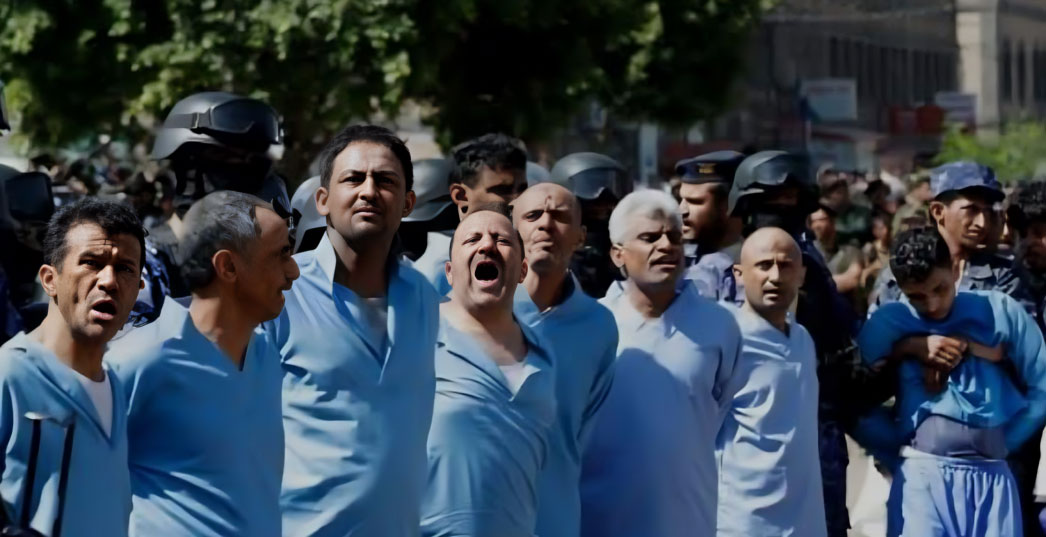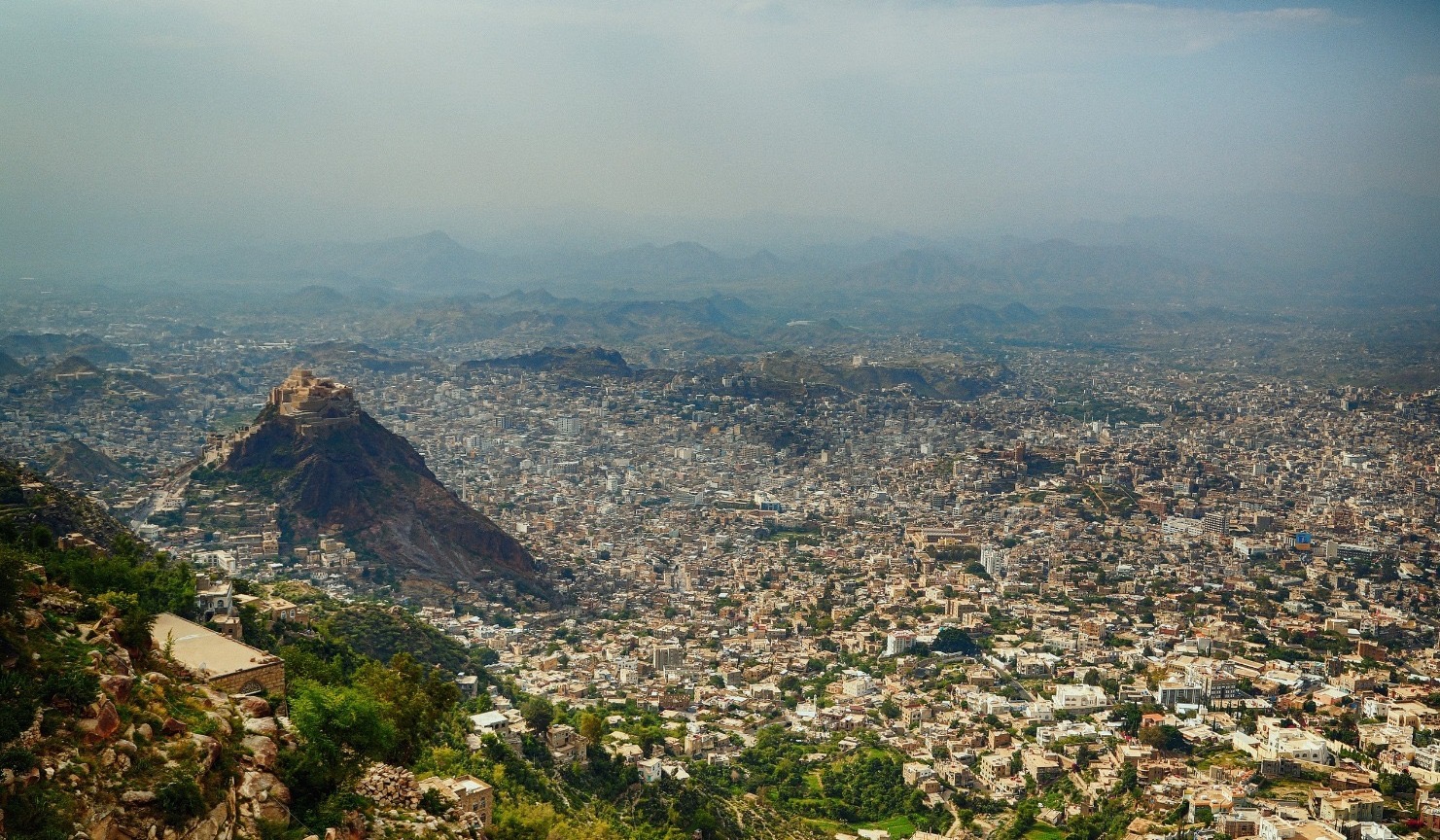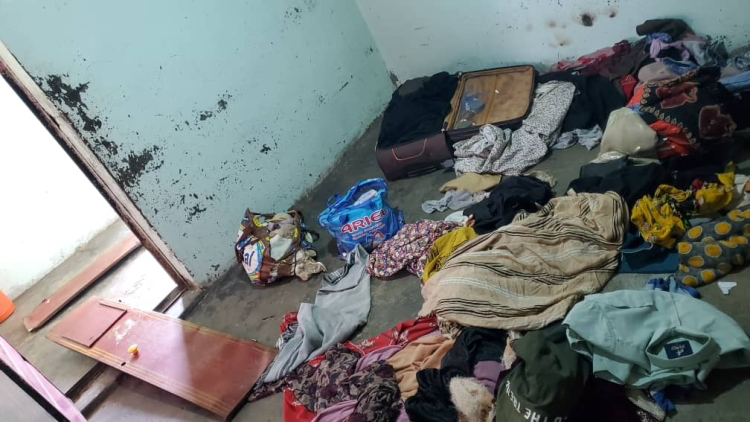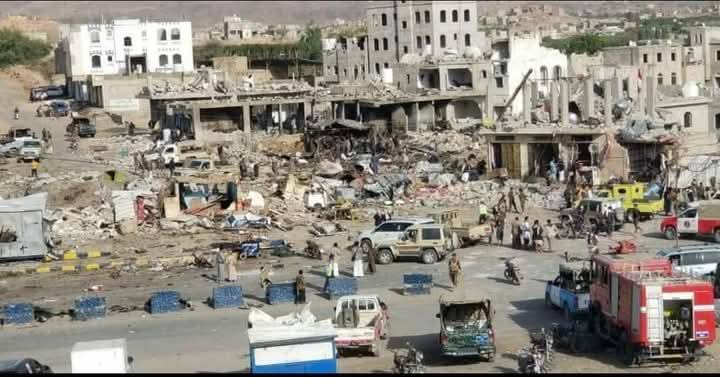
Barran Press
Dozens of Yemeni activists and journalists participated in a wide-scale online protest to expose and highlight the crimes committed by the Houthi group, internationally classified as a terrorist organization, particularly against the residents of Al-Hodeidah Governorate (western Yemen). The protest coincided with the third anniversary of the execution of nine residents of the governorate on charges of espionage.
Under the hashtags "Houthi Crimes Will Not Be Forgotten" and "Houthis Execute Tihama Residents," Yemeni tweeters exposed the atrocities committed by the Houthis against the people of Tihama and Yemen as a whole, citing victim statistics and supporting their claims with photos and videos.
Participants in the online protest did not forget the international community's silence regarding Houthi crimes, calling for urgent action to stop these atrocities and ensure justice for the victims by holding the perpetrators accountable.
"Barran Press" monitored some of these posts on the "X" platform, starting with journalist Khaled Al-Olayyan , who wrote about one of the latest crimes committed by the Iran-backed group: "A new crime added to the record of the Houthi terrorist militia against the people of Tihama, as the militias executed seven citizens through lethal injections inside one of their prisons, days after their acquittal."
Al-Olayyan added, "This systematic crime continues the policy of extermination, following the execution of nine citizens, including a child, by firing squad in one of Sana'a's squares in 2021."
He pointed out that the continued targeting and abuse of Tihama residents by the Houthis, from displacement and land theft to executions and assassinations, reveals the extent of the hatred and tyranny practiced by this group against innocent people. "The people of Tihama are paying the price for their resilience and dignity, and the world must break its silence on these heinous crimes," he said.
Journalist Mustafa Ghulais addressed the issue in several posts, considering the massacre in Sana'a against nine Tihama residents in 2021 as a scene that "encapsulates tyranny and brutality against innocent civilians." He added, "That crime shook Yemenis and confirmed the Houthis' disregard for the freedom and dignity of Tihama residents."
"In May 2024, the Houthis decided to execute 11 people from Tihama on charges of espionage for foreign countries, in blatant violation of human rights. This crime adds to the dark Houthi record, proving that this sectarian entity fights every voice that rejects its tyranny," Ghulais said.
Regarding other crimes committed by the group, Ghulais mentioned their deliberate planting of landmines and explosive devices in Tihama's fertile lands, turning fields into cemeteries and the land into a source of death. "Not a day passes without a death or injury, in a malicious attempt to starve the Yemeni people and destroy their economy," he said.
"What the Houthi militia is doing today to the people of Tihama brings to mind a long history of excommunication and bloodshed practiced by the Imamate against the free people of Tihama. Nevertheless, Tihama's will remains stronger than this oppression and Houthi tyranny," Ghulais added.
Journalist Hamza Al-Jubaihi, who was released from Houthi prisons, said, "Tihama and its people have grown weary of the Houthi militia's practices, which have abused, displaced, and deprived them of their land and its resources."
Al-Jubaihi pointed out that "the Houthis turned Tihama into an execution ground for its free people who reject the militia's ideology and plans." He added, "Houthi crimes against the people of Tihama do not stop at displacement and impoverishment but extend to committing heinous crimes such as injecting innocent people with lethal injections in their hospitals. What could be more vile than targeting lives with treacherous means?"
Activist and academic Hassan Al-Qutwi wrote, "Tihama bleeds in silence, and the innocent pay the price for conflicts they have no part in. History will not remain silent in the face of these heinous crimes committed against the people of the homeland."
"The people of Tihama face systematic extermination at the hands of the Houthi terrorist militia, which plants their fertile lands with mines to deprive them of their livelihood and double their suffering. Tihama will remain steadfast in the face of oppression," Al-Qutwi added.
In another post, Al-Qutwi mentioned that "official statistics confirm the death of hundreds out of thousands of detainees who are subjected to various forms of physical and psychological torture in Houthi prisons and detention centers, in addition to direct physical liquidation."
Journalist Abdullah Ismail spoke about the nine Al-Hodeidah residents executed by the Houthis, saying, "The people of Tihama will not forget the Houthi militia's killing of nine of their sons on the pretext of participating in the killing of the deceased Al-Sammad." He added, "The people of Tihama will not forget the gaze of Tihama martyr Abdulaziz Al-Aswad, who morally condemned and exposed the Houthis to the world, revealing some of the crimes happening behind prison walls and detention centers."
According to Ismail, Al-Hodeidah Governorate is the clearest evidence of the UN's failure and even its collusion with the Houthi group. "Their concern over the Houthi defeat led them to plunge the city into the worst humanitarian disaster under UN sponsorship, and even their staff and aid were not spared from Houthi targeting," he said.
"This sectarian terrorism against Tihama and its tribes and residents is an extension of the historical crimes of the sect, which today reaches its peak in attacking the weak and Yemeni farmers in front of the world's eyes," Ismail added.
Journalist Abdullah Al-Munifi described the execution crimes, including poisonings of kidnapped Yemenis, as "part of a series of systematic Houthi crimes against various segments of the Yemeni population, practiced by the Houthi militia since their coup and control of Sana'a in September 2014."
He noted that "the residents of Saada Governorate, the stronghold of the rebellion militia, have faced similar terrorism since the militia emerged from the caves of sedition at the beginning of the new millennium."
"The execution and liquidation of detainees and others is a weapon used by the Houthi terrorist militia to terrorize the Yemeni people who reject their racist theocratic project. The sectarian gang lives in a state of fear, sensing its imminent fall, and resorts to terrorizing society, believing this will prevent its inevitable collapse," Al-Munifi said.
In another post, Al-Munifi emphasized the need for the international community to act to stop the Houthi militia's racist terrorist crimes of executions and liquidations and to protect the residents of Tihama and other areas from the sectarian gang's terrorism.
"The international silence on execution and liquidation crimes encourages the Houthi terrorist militia to continue their brutal practices, making the international community complicit in the racist gang's killing of Yemenis," he added.
Researcher Hamdan Alaly wrote in a lengthy post, "The residents of Tihama are among the poorest in the country, and the Houthis have systematically increased their suffering. They not only stole employees' salaries but also the aid allocated to them."
In his post titled "Aid and Famine in Tihama," Alaly added, "At the end of 2016, images circulated online showing a group of residents in Al-Hodeidah and Hajjah with their skin clinging to their bones from severe hunger. Many reports confirmed deaths among women and children due to lack of food and the spread of epidemics."
"This happened while many relief organizations were present in these areas, including Islamic Relief, Oxfam, UNICEF, the Food and Agriculture Organization (FAO), the World Food Programme, Action Against Hunger, ACTED, the Agency for Technical Cooperation and Development, the International Rescue Committee, Médecins Sans Frontières, the International Organization for Migration, the Norwegian Refugee Council, the United Nations Population Fund, the World Health Organization, ADRA, the United Nations High Commissioner for Human Rights, INTERSOS, the International Cooperation Association, and the International Committee of the Red Cross," he said.
Alaly questioned, "What happened? Where did the aid provided by these organizations to the residents of these limited areas go? How did these large organizations fail to save the hungry there?"
"By tracking the Houthis' activities in these areas, it was clear that systematic looting and the imposition of Houthi dominance hindered the work of organizations, which remained silent to maintain donor support that might be cut off if the organizations appeared unable to distribute aid and reach the poor. They resorted to distributing aid in other areas with less need," he added.
Alaly cited an example, "A Houthi leader named 'Abu Mashal' and ten armed escorts closed the office of the Norwegian Refugee Council in Al-Khashm District, Hajjah Governorate, at the end of 2016."
"An organization employee confirmed to me that they took the employees' laptops and satellite internet equipment, leading to the office's closure. Several employees fled after being accused of being 'Daesh.' The same organization faced another attack in February 2017 by the Houthis, who arrested three of the organization's employees and a contracted driver while distributing aid in Al-Hodeidah Governorate," he added.





